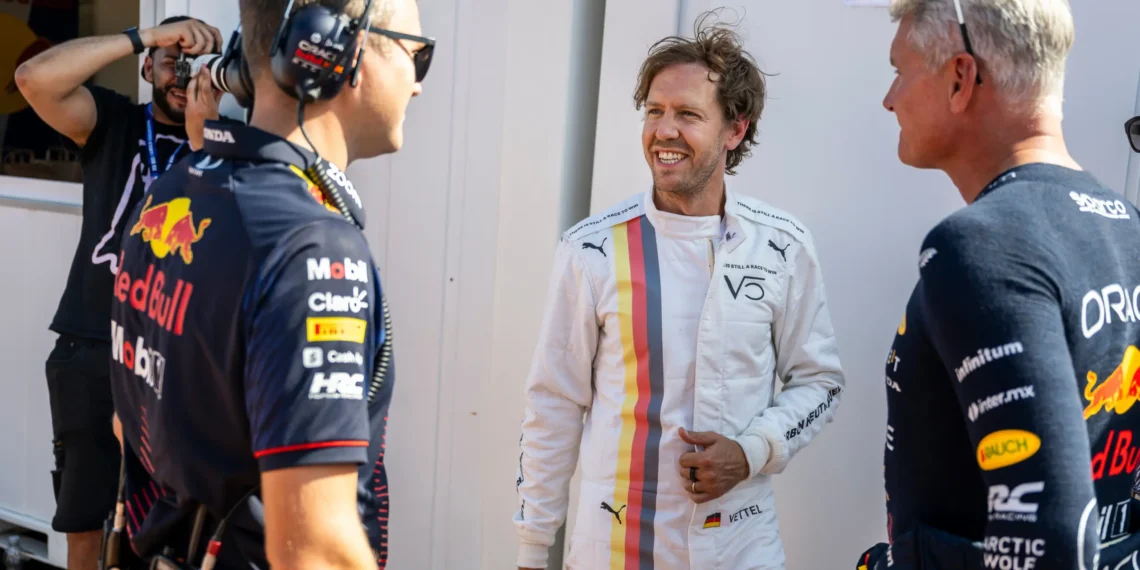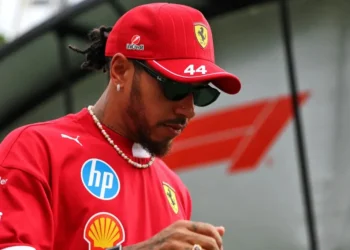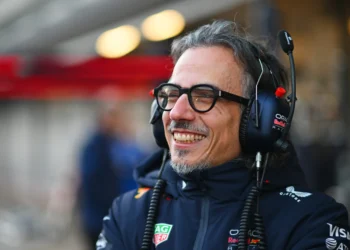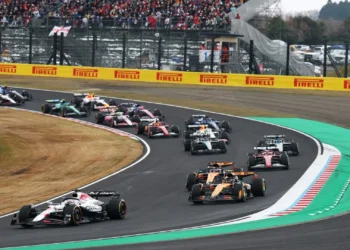Sebastian Vettel Sounds Alarm: 2026 F1 Regulations Risk Repeating 2014 Disaster!
In a stunning revelation that could send shockwaves through the motorsport world, four-time Formula 1 champion Sebastian Vettel has issued a dire warning about the impending 2026 regulation changes. Echoing the turmoil of the 2014 season, Vettel has voiced his skepticism regarding the new rules, stating that they could lead to a catastrophic repeat of past mistakes.
The 2014 season marked a seismic shift in F1 with the introduction of complex and exorbitantly expensive hybrid powertrains. Designed to align the sport with road car technology and promote a greener image, the primary goal was fuel efficiency. However, this ambitious initiative spiraled into chaos, resulting in a grid dominated by Mercedes, who clinched 16 out of 19 races that year and went on to win eight consecutive constructors’ championships.
Vettel, who has transitioned into a vocal advocate for sustainability since his retirement, articulated his frustrations in an interview with Auto Motor und Sport. “The 2014 regulations were good in principle,” he asserted, “but the implementation was fundamentally flawed. It cost an astronomical amount of money and ultimately contributed nothing of value to the sport.”
Fast forward to 2026, and F1 aims to overhaul its powertrain regulations, mandating that half of the car’s power must derive from electrical energy. While the new models will shed 30kg and sport more efficient aerodynamics, Vettel remains unconvinced. “The changes are not entirely convincing to me yet,” he expressed. “Energy recovery is a great concept, but focusing solely on the rear axle while neglecting the front is nonsensical.”
Despite slight advancements in weight reduction, Vettel contends that the cars are still excessively heavy. “We’re moving in the right direction, but it feels like a drop in the ocean. The cars should be 200 kilograms lighter,” he insisted. His critical stance raises pressing questions: “What are we trying to achieve? How will we achieve it? Where is the funding coming from?”
Beyond his critiques of the regulations, Vettel has emerged as a champion for sustainable fuels through his initiative, Race Without a Trace. During a recent demonstration at the Goodwood Festival of Speed, he showcased sustainable fuels by driving historic F1 cars without any modifications. “Climate-neutral fuels are essential,” he argued, emphasizing their relevance beyond motorsport, particularly for existing vehicles, shipping, and aviation.
However, he cautioned against the pitfalls of unchecked development in the realm of sustainable fuels. “If we unleash the typical Formula 1 development race on these fuels, we risk repeating the mistakes of 2014,” he warned, advocating for stringent controls on the origin of the fuel molecules to ensure relevance to mass production.
As the countdown to 2026 continues, Vettel’s stark warnings beckon a critical examination of the future of Formula 1. Will the sport learn from its past, or will it plunge headfirst into another costly misadventure? Only time will tell, but one thing is clear: the stakes have never been higher, and the motorsport community must pay attention to the cautionary tale laid out by one of its most respected figures.










